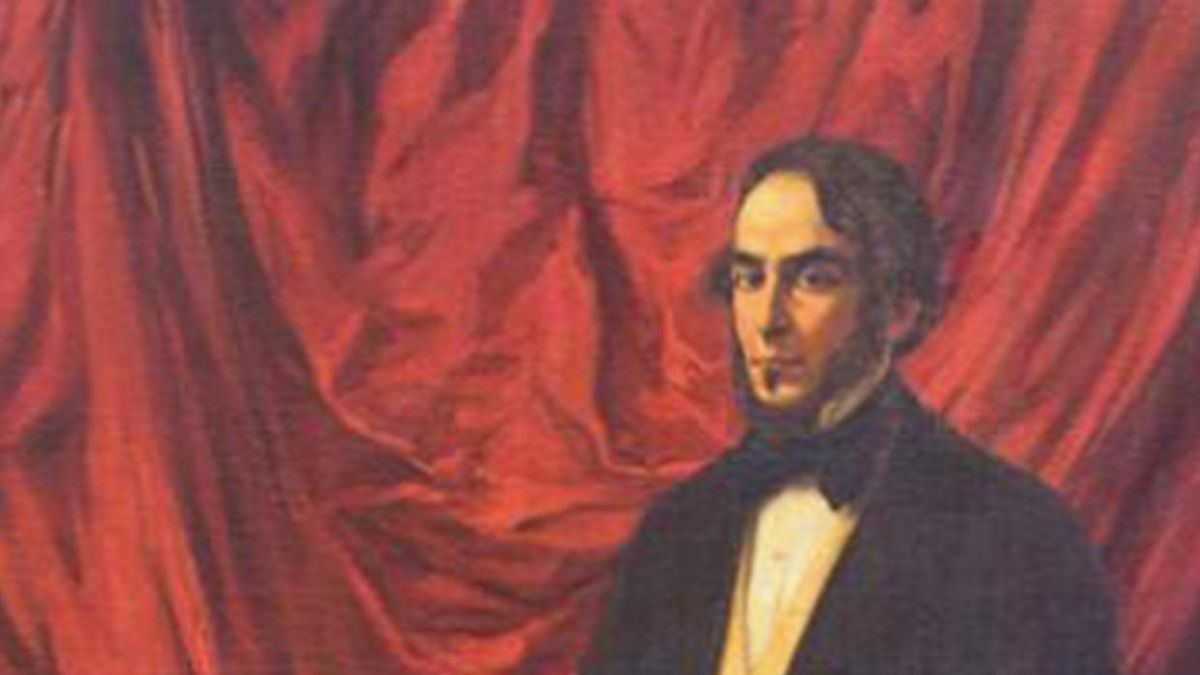“Indignity achieves accomplices. Dignity, friends.
Does anyone imagine a world without rights, or a society without lawyers? On December 19, 1958, the Governing Board of the Argentine Federation of Bar Associations approved celebrating Lawyer’s Day on August 29 of each year, in memory of the birth of Juan Bautista Alberdi in Tucumán in 1810.
An illustrious Argentine John Baptist Alberdi He expressed: “Men dignify themselves by prostrating themselves before the law, because in this way they are freed from kneeling before tyrants.”
We Argentines have a norm, called the Fundamental Law. It’s ours Constitutionwhich is wide, humanitarian and welcoming, since it invites “all the men of the world to want to inhabit Argentine soil”.
And this constitution was based on a book written in the mid-nineteenth century by a lawyer from Tucumán, which he titled “Bases for the Organization of the Argentine Republic.”
We are referring to a lucid Argentine thinker, Juan Bautista Alberdi.
In the human, he was a sad, melancholic man.
Already his arrival in life, came wrapped in pain. Her mother, Josefa Aráoz, died in childbirth.
His father, Salvador Alberdi, -French Basque- left this life when Juan Bautista was only 12 years old.
But his father managed to instill in him several spiritual facets, which were burned into his tender and intelligent soul. In the first place, he instilled in her an inalienable love of justice.
At the age of 12, the boy Alberdi already understood that to omit justice was to support injustice. That duties should be fulfilled, with the same firmness with which rights should be claimed. And that a single outbreak of justice justified plowing a desert.
But Don Salvador Alberdi –the father- also instilled in him knowledge of the French language, notions and taste for music, and a kind of passion for the study of Law.
It was the year 1825.
Alberdi was 15 years old as he was born in 1810, only three months after the May Revolution.
And at that time he won a scholarship to study Moral Sciences in Buenos Aires.
Then he moved from Tucumán to the city of Buenos Aires with an older brother.
He quickly discovered that a big city can be a big desert. Although it is inhabited.
After finishing high school, his unique intelligence earned him the spiritual and financial support of two figures of the time: Florencio Varela and Miguel Cané.
He then managed to enter the Faculty of Law.
He was also simultaneously studying piano and even composing musical pieces that had a good impact. At that time, Rosas assumed the Government. Alberdi, a fierce opponent of all tyranny, decided to continue his career in Montevideo. There he received his Lawyer’s degree.
His restless spirit led him to settle in Paris, to later establish his law firm in Valparaíso, Chile. He persisted in his disagreement with the Rosas government.
He continued doing journalism, writing theater, playing music. His mighty talent of his was truly multifaceted!
With the fall of Rosas, he returned to the country –Alberdi was already 44 years old- when he was appointed to diplomatic posts in Chile, England and France.
He was elected deputy. He published another important book: “The Crime of War”, an extraordinary pacifist plea.
In that work he ratified that he understood very well that in wars one only kills and dies, although many speak of triumph. And that war is never as cruel as those who promote it.
And slander came to him, which usually has more force than the truth. And that it is like a microbe that only attacks what is clean.
And they hurt him with lies, since they couldn’t hurt him with truths.
And some slanders, subtle as they were, hurt him more. Because they brought the aggravating circumstance of subtlety. And the superior man that Alberdi was, had unlimited energy to defend the truth about him, but little strength to defend his person.
At the age of 70 he returned permanently to Paris, where he would die in June 1884.
But Argentine history has already given its definitive judgment, placing Juan Bautista Alberdi as one of our great men who added light to light.
And one of his most valuable facets, that of a pacifist, inspired this aphorism in my mind.
“Many sing when they go to war. But, none when he returns.”
Source: Ambito
David William is a talented author who has made a name for himself in the world of writing. He is a professional author who writes on a wide range of topics, from general interest to opinion news. David is currently working as a writer at 24 hours worlds where he brings his unique perspective and in-depth research to his articles, making them both informative and engaging.




